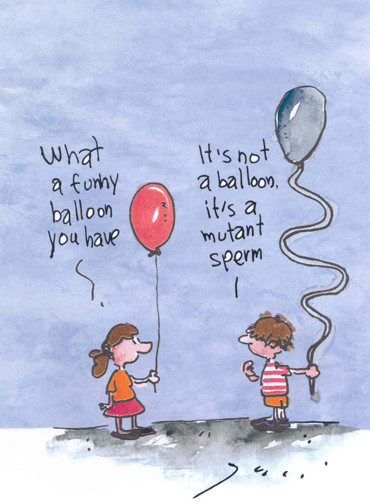
From among the prevalent myths associated with infertility, a profound one is that infertility is a female problem only, but this is so in 35 percent of the cases. Another 35 percent of infertility cases are due to problems in the male partner.
A combined problem (in both male and female) is present in 20 percent of the cases, leaving about 10 percent “unexplained” cases where the causes of infertility are not known.
In fact, male problems account for nearly half the infertility cases treated at IVF facilities across the world.
Sometimes, the male has a low or no sperm count. Sometimes, the sperm show poor mobility or have unusual shapes (morphology).
Ironically, while the human race has witnessed a population explosion in the last 50 years, male sperm counts have plummeted across the Western world over the last two decades.
 As indicated by a meta-analysis of 61 papers published in 1992 in the British Medical Journal, sperm counts in the industrialized world have been reduced by half, from 113 million per milliliter of semen to only 66 million, since the 1940s.
As indicated by a meta-analysis of 61 papers published in 1992 in the British Medical Journal, sperm counts in the industrialized world have been reduced by half, from 113 million per milliliter of semen to only 66 million, since the 1940s.
More recently, in 2012, Joëlle le Moal and his team at France’s Institute for Public Health Surveillance noted that the sperm count of an average Frenchman had declined by 32.2 percent between 1989 and 2005. The proportion of properly formed sperm fell too, from 60.9 to 52.8 percent, during the same period. Their findings were published in the journal Human Reproduction and involved over 26,000 men drawn from 126 fertility clinics across France.
This decline is accompanied by another worrying trend — a doubling of testicular cancer over the last three decades, which can further dampen man’s future fertility.
While there are a number of causes, almost two-thirds of infertile men have sperm production problems — either the sperm counts are low or the sperm produced don’t have the proper shape and can’t fertilise the female egg.
Though not common, a few men have no sperm present in their ejaculated semen. Strictly speaking, only these men can be called “infertile”.
One in every 16 infertile men produce sperm antibodies, which hamper the sperm mobility and block the egg binding needed for fertilisation.
A variety of physical problems, usually characterized by a low sperm count or abnormal sperm morphology, can also cause male infertility.
These include variocoele (an abnormal flow of blood from the abdomen into the scrotum hampering sperm development), damaged sperm ducts that are unable to carry sperm from the testicles to the penis and a condition called retrograde ejaculation where the semen is ejaculated into the bladder rather than through the urethra.
 Erectile dysfunction, premature ejaculation and ejaculatory incompetence are some of the other reasons for male infertility. A few men also face infertility due to hormonal problems and have low testosterone levels.
Erectile dysfunction, premature ejaculation and ejaculatory incompetence are some of the other reasons for male infertility. A few men also face infertility due to hormonal problems and have low testosterone levels.
Some examples of hormonal disorders which can disrupt male infertility are hyperprolactinemia (elevated prolactin levels reduce sperm production and reduces libido), hypothyroidism (low thyroid hormone levels causing poor semen quality and testicular function), congenital adrenal hyperplasia (pituitary suppressed by increased levels of adrenal androgens), hypogonadotropic hypopituitarism and panhypopituitafism.
Lifestyle choices causing infertility include smoking (decreases sperm counts and sperm cell motility), alcohol abuse, obesity, anabolic steroid use (testicular shrinkage), exposure to harmful chemicals and toxins, heat stress from tight trousers or underwear (increased scrotal temperatures resulting in decreased sperm production).
Placing a laptop computer over one’s lap for long hours has been shown to affect sperm count and function.
Sometimes engaging in intense exercise is also harmful, as it produces high levels of adrenal steroid hormones causing a testosterone deficiency.
Few infertile men have also found to be deficient in Vitamin C and Zinc.
Apart from getting advice from a reliable fertility expert, here are a few tips for every man who is looking to become a father soon.
First, eat the right kind of diet, one low in animal fats and high in fish, chicken, whole grains, fruits and vegetables. A diet rich in antioxidants and Zinc is also recommended.
Second, reduce your weight at once if you are obese.
Third, keep your testicles 2 to 3 degrees Centigrade cooler than the rest of your body for effective sperm manufacturing. Avoid hot baths, sauna, cycling or sitting down for long hours. Keep your balls cool with Snowballs.
Fourth, abstain from smoking, drinking alcohol or taking drugs or steroids.
As problems with sperm production and sperm quality are the major causes of male infertility, much recent research has gone into solving these problems.
 Though doctors believe that any breakthrough regarding improving sperm production or quality is at least a decade away, there are some encouraging signs.
Though doctors believe that any breakthrough regarding improving sperm production or quality is at least a decade away, there are some encouraging signs.
For example, researchers led by Reijo Pera from the Institute for Stem Cell Biology and Regenerative Medicine at Stanford University developed early-stage sperm cells by taking skin cells from three infertile men, as reported in Cell Reports.
These men were missing key genes on the male Y chromosome associated with reduced or no sperm production. The researchers took fibroblast connective tissue cells from the skin and transformed them into induced pluripotent stem (iPS) cells.
Meanwhile, Nature reported that scientists at the University of Pittsburgh generate sperm cell precursors from human iPS cells, although they didn’t start with adult skin cells from genetically infertile men.
In 2011, a team headed by Stefan Schlatt at Muenster University in Germany was able to grow mouse sperm by using germ cells — the cells in testicles that are responsible for sperm production.
The findings, published in Nature, have generated hope that the same technique may work for humans too.
Keep your balls cool to promote fertility with Snowballs.
Source : Jakarta Post
